
Research: www.alexgaz.org
Book: https://uncertainfuturesbook.com
For the undergrads, I’ve added new simulations — including a day playing Catan: New Energies!
Happy to share syllabi with anyone designing or updating courses.


For the undergrads, I’ve added new simulations — including a day playing Catan: New Energies!
Happy to share syllabi with anyone designing or updating courses.
While some GOP House members wrote letters, in the end, none would tank the whole bill to save the IRA's EV incentives.

While some GOP House members wrote letters, in the end, none would tank the whole bill to save the IRA's EV incentives.
Relevant if you're interested in:
- The domestic politics of stopping global warming
- How voters understand their changing economic circumstances
- The erosion of working-class support for Democrats
www.journals.uchicago.edu/eprint/HBDCS...
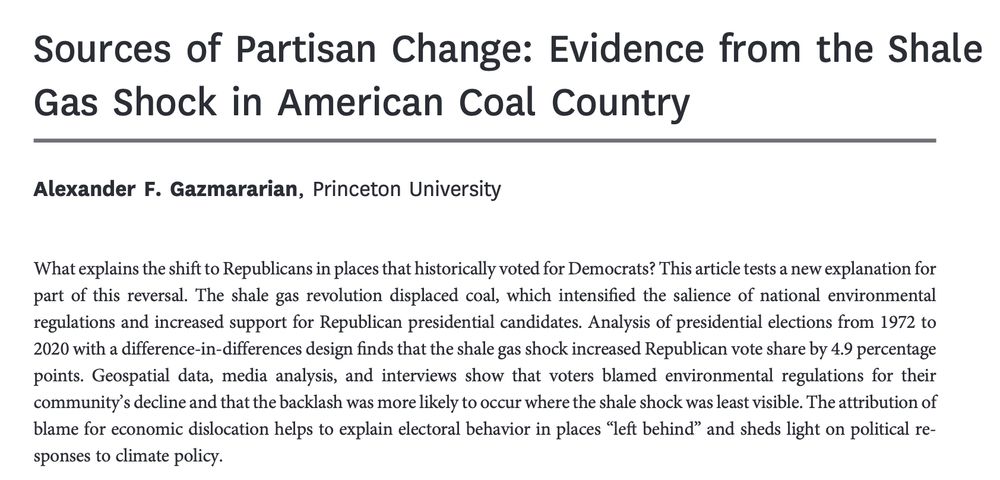
Relevant if you're interested in:
- The domestic politics of stopping global warming
- How voters understand their changing economic circumstances
- The erosion of working-class support for Democrats
www.journals.uchicago.edu/eprint/HBDCS...
osf.io/preprints/os...
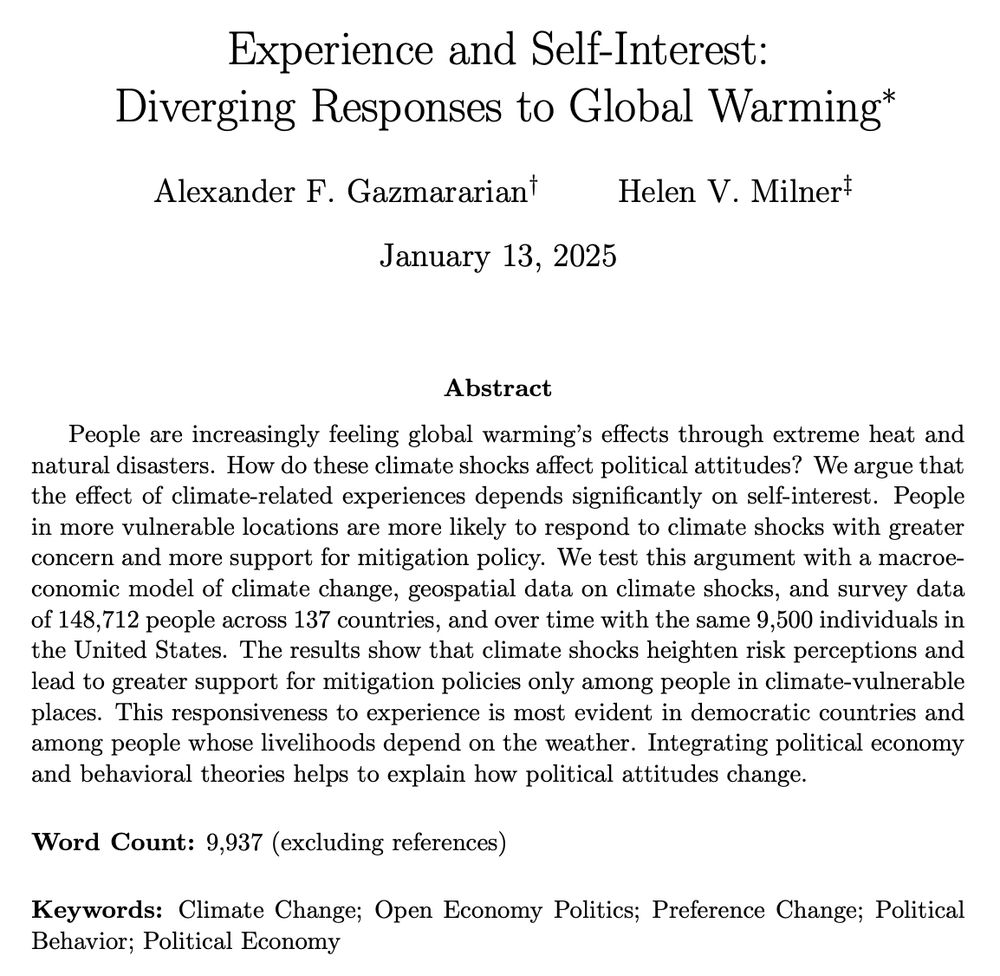
osf.io/preprints/os...
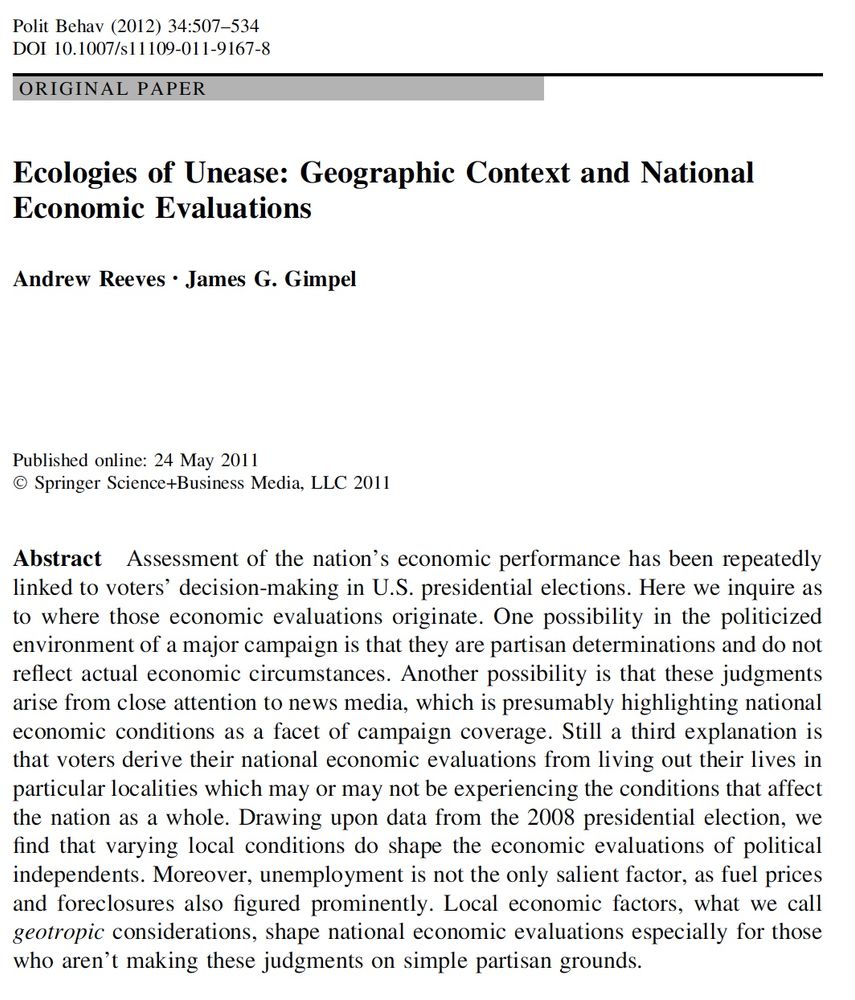
Tldr: it's possible to lengthen time horizons and increase support for climate policy
Open access: link.springer.com/article/10.1...
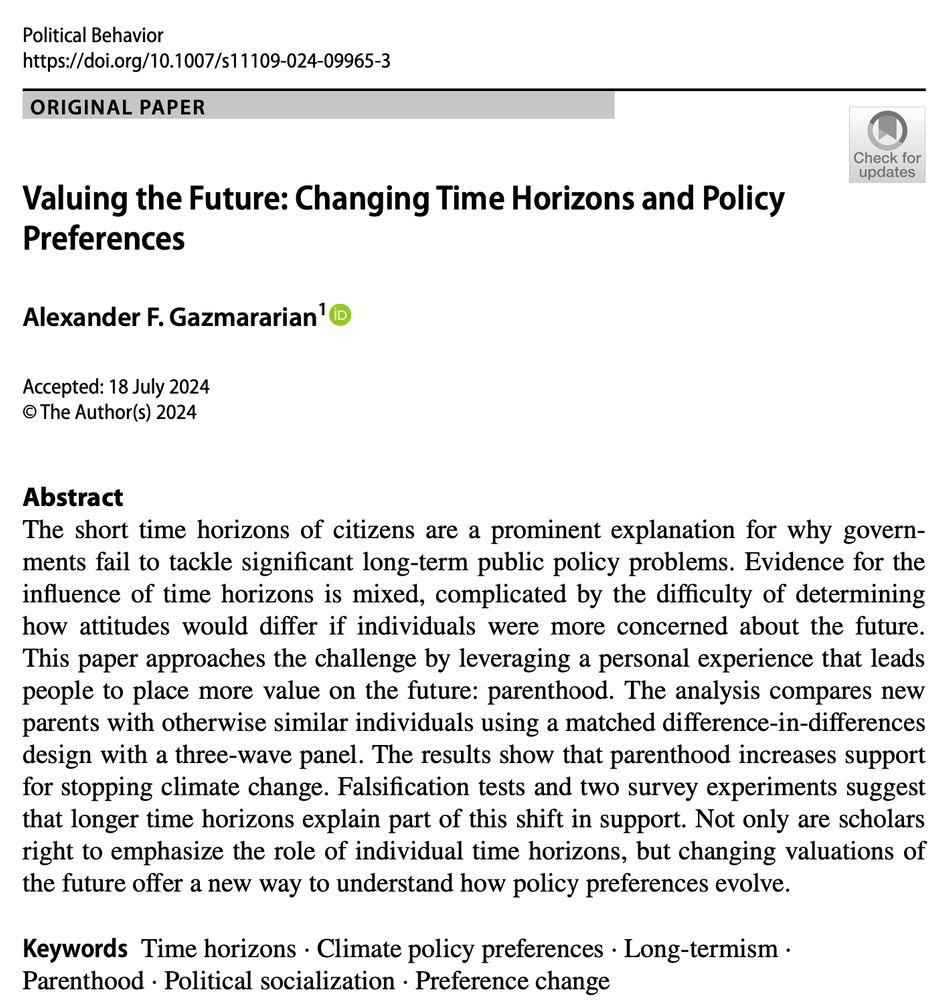
Tldr: it's possible to lengthen time horizons and increase support for climate policy
Open access: link.springer.com/article/10.1...
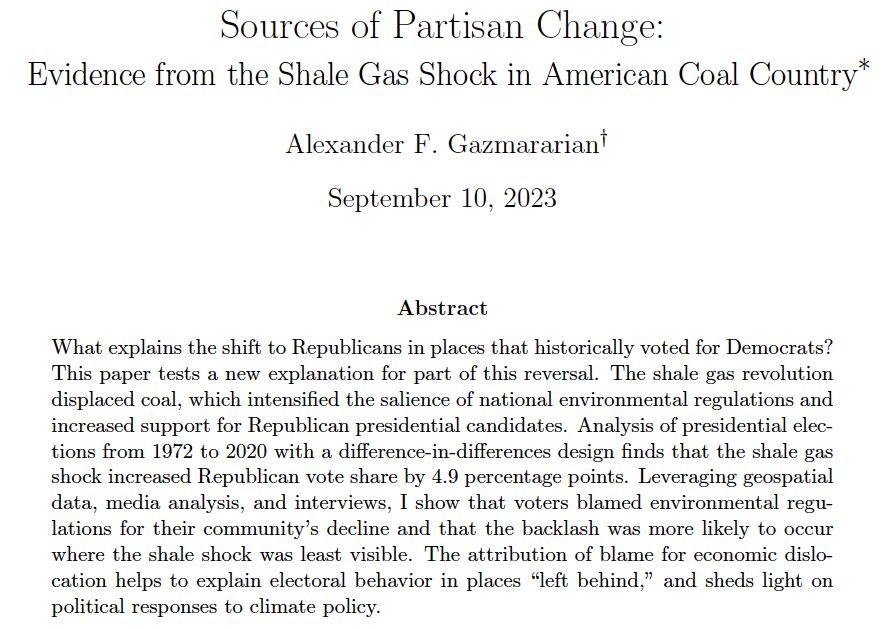
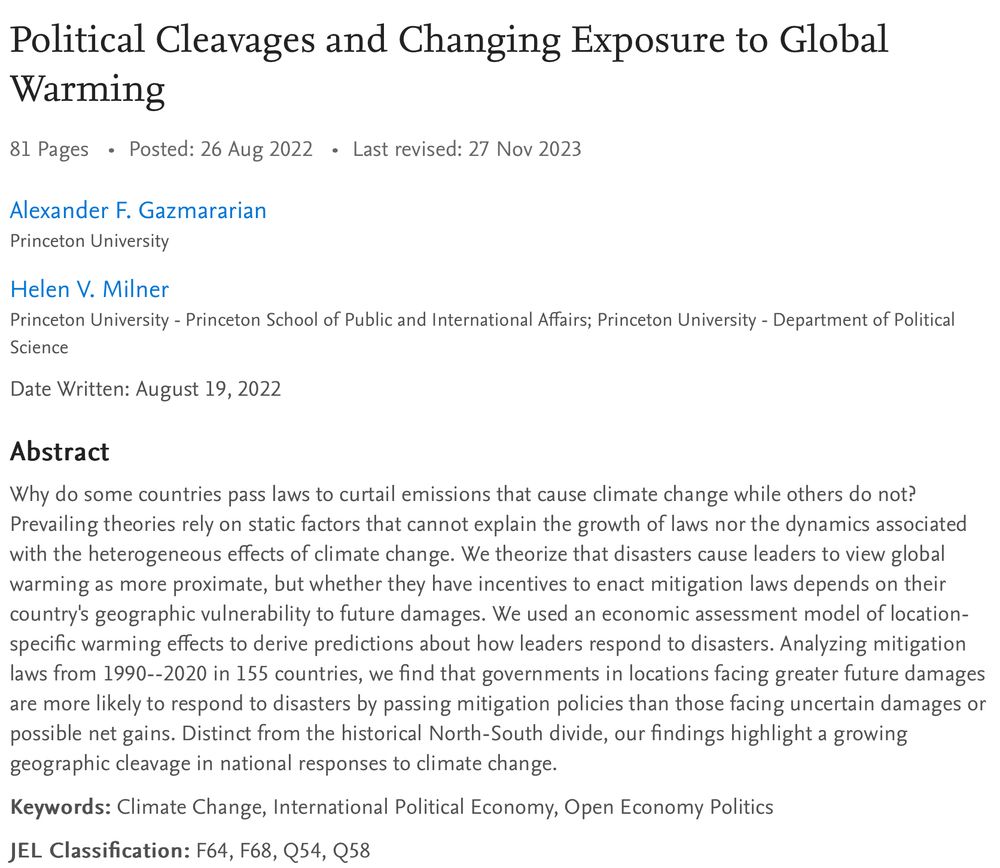
Our findings here align with focus groups in previous work

Our findings here align with focus groups in previous work

And pre-trends are parallel, so this is an appropriate setting to learn about causality.

And pre-trends are parallel, so this is an appropriate setting to learn about causality.



➡️ communities manufacturing gas vehicle parts more likely to vote for GOP pres. as EV salience grows

➡️ communities manufacturing gas vehicle parts more likely to vote for GOP pres. as EV salience grows

Globally, 10 jurisdictions btwn ‘16-17 announced goals to phase out ICE vehicles
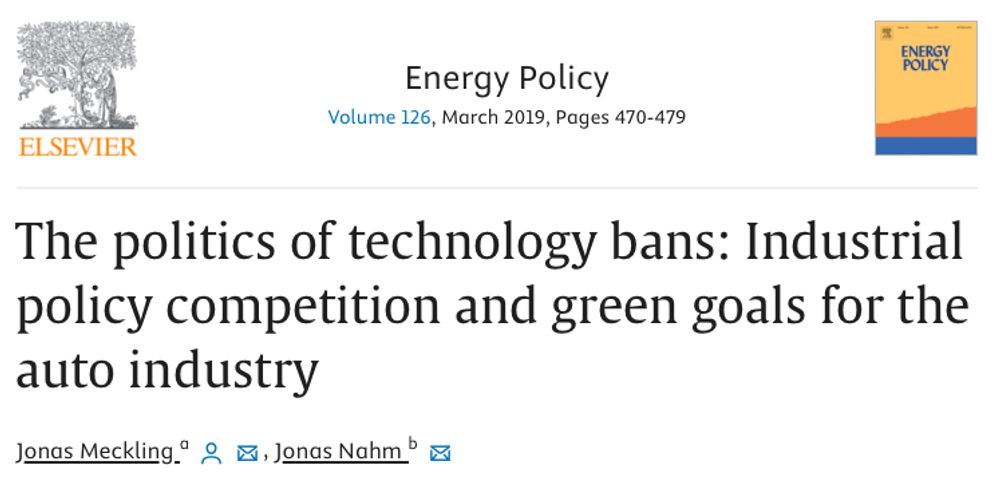
Globally, 10 jurisdictions btwn ‘16-17 announced goals to phase out ICE vehicles
The US auto industry employs over 1.1 million manufacturing workers—many in swing states

The US auto industry employs over 1.1 million manufacturing workers—many in swing states
But we know less about industrial policy, despite it being the main policy approach countries have turned to (eg, IRA)
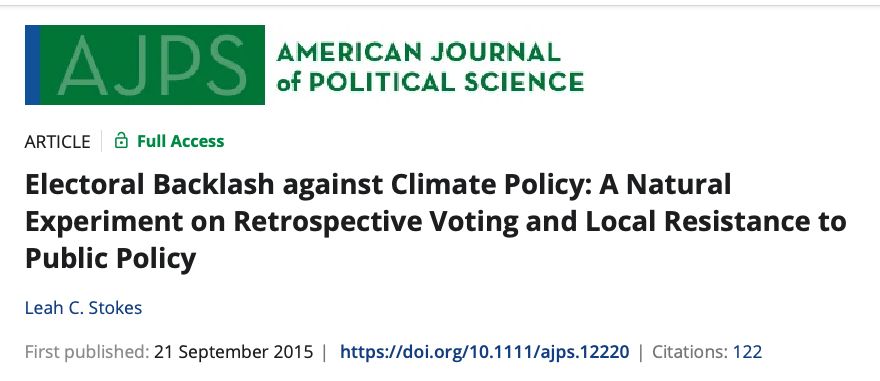


But we know less about industrial policy, despite it being the main policy approach countries have turned to (eg, IRA)
Paper: bit.ly/3QEMsJI
Thread below. polisky
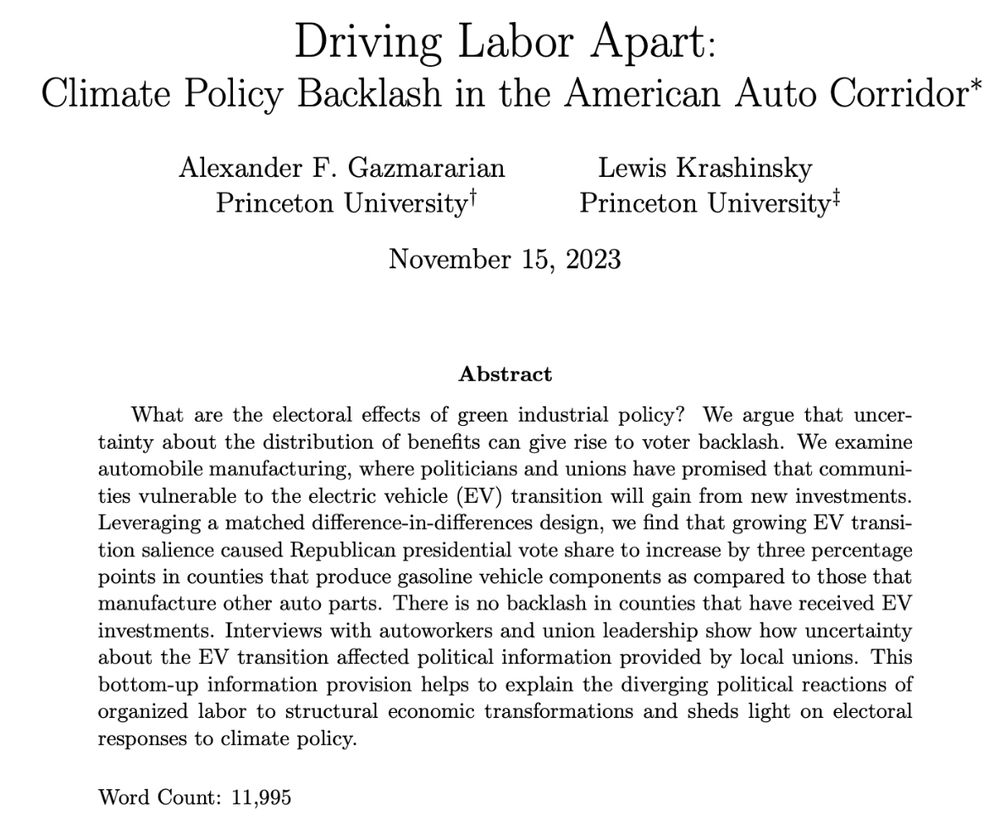
Paper: bit.ly/3QEMsJI
Thread below. polisky




Here’s Former Energy Secretary Ernest Moniz:

Here’s Former Energy Secretary Ernest Moniz:
This story starts with a license plate counting expedition, Lucas Franco, a union researcher, was cataloging the states' of the trucks at a wind construction site in Minnesota @startribune.bsky.social
Why would Lucas do this?

This story starts with a license plate counting expedition, Lucas Franco, a union researcher, was cataloging the states' of the trucks at a wind construction site in Minnesota @startribune.bsky.social
Why would Lucas do this?

